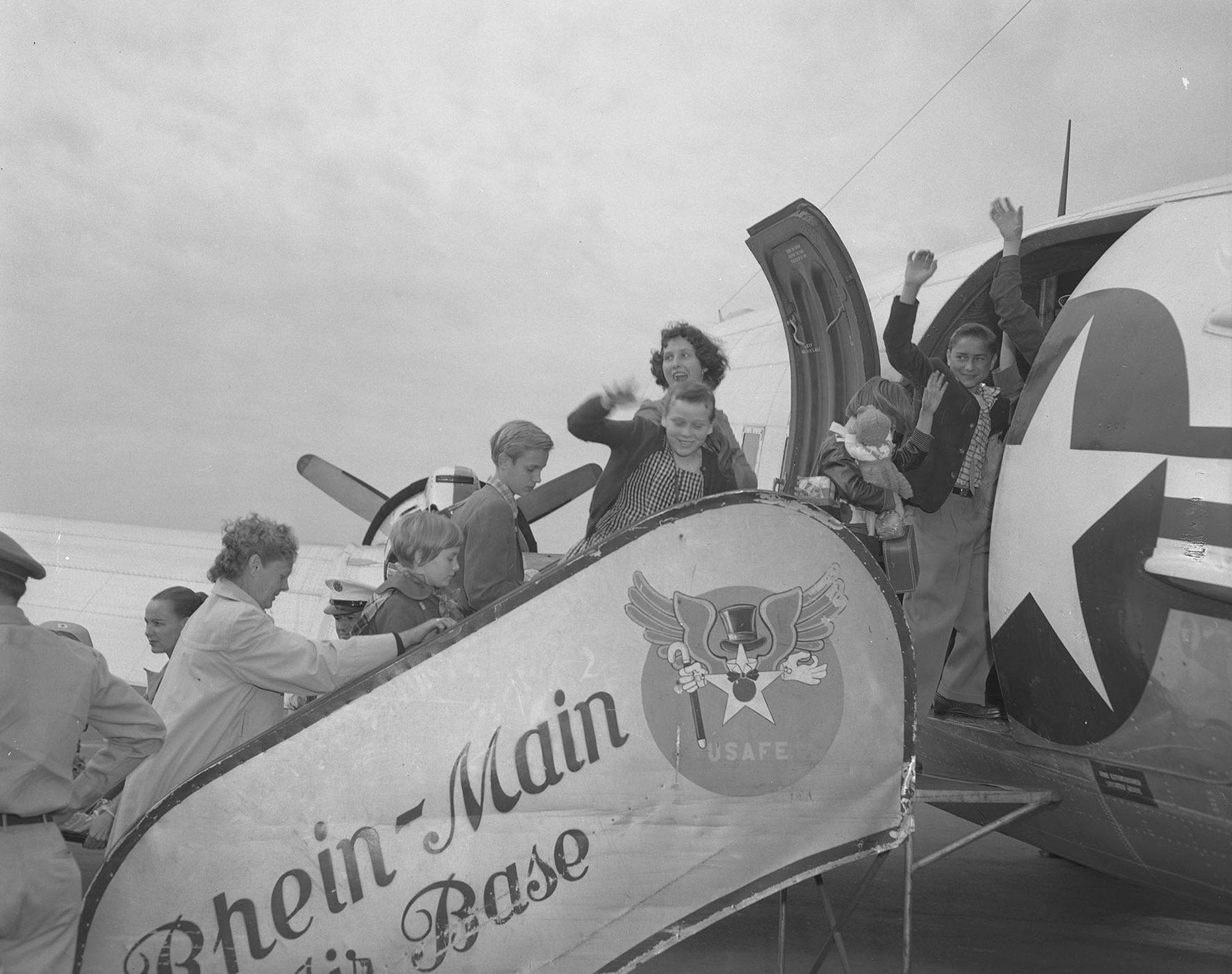The opening of the exhibition on the history of “Operation Kinderlift” from 1953 to 1957 was a most successful evening. At the first event of the new year, Allied Museum Director Dr. Helmut Trotnow was pleased to welcome a large number of guests to the Nicholson Memorial Library.
Three prominent speakers addressed the audience: Dr. Rudolf Seiters, President of the German Red Cross, Jay Lindell, General of the U.S. Air Force in Europe, and Peter Boenisch, co-initiator of Operation Kinderlift. Welcomed with particular enthusiasm were the “Kinderlift kids,” who had participation in the Airlift and experienced a “vacation from the Cold War.” The Museum was also successful in finding two contemporary witnesses: Ruth Martin and Ursula Meseck worked for the Red Cross at the time.
The international aid actions surrounding the Tsunami disaster in Southeast Asia served as a reminder to the guests that people often find themselves in an emergency situation and require help from the outside. Following the end of World War II, there was widespread poverty and need in Berlin and Germany, which were worsened by the political tensions between the Western democracies and the Communist Soviet Union.
In contrast to the actual Berlin Airlift of 1948/49, the public is largely unfamiliar with Operation Kinderlift. As such, the audience was all the more fascinated by the words of Peter Boenisch, who initiated the project as a young journalist at the Northwest German Broadcaster (NWDR). Adolf Grimme, the legendary director of the broadcaster, took up the idea and initiated a special fundraising action. Those funds allowed Operation Kinderlift to take off. The U.S. Air Force in Europe, headquartered in Wiesbaden, made the planes available free of charge, and pilots volunteered to fly the kids on vacation. According to Mr. Boenisch, the action was a shining example of German-American cooperation and friendship.
“Berlin’s Operation Kinderlift provides a great deal of food for thought, since it is a positive example of international cooperation and constructive neighborly assistance.”, Dr. Helmut Trotnow.

